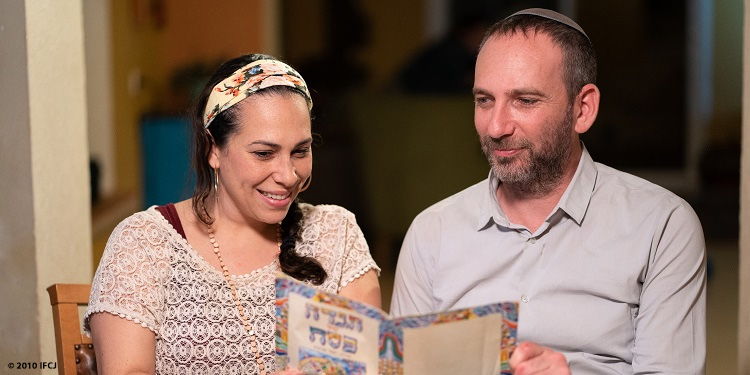The Power of Asking Questions
Yael Eckstein | April 19, 2022

“In days to come, when your son asks you, ‘What does this mean?’ say to him, ‘With a mighty hand the LORD brought us out of Egypt, out of the land of slavery.’” — Exodus 13:14
This week, my family and I, along with Jews around the world, are celebrating the most important event in Jewish history — the Exodus and redemption of the children of Israel from bondage in Egypt. These devotions were prepared for you in advance to help you discover the many lessons in faith Passover has for you.
Dr. Isidor Rabi, Jewish physicist and recipient of the 1944 Nobel Prize for Physics, was once asked why he became a scientist. He replied, “My mother made me a scientist without ever intending it. Every other mother in Brooklyn would ask her child after school: ‘So? Did you learn anything today?’ But not my mother. She always asked me a different question. ‘Izzy,’ she would say, ‘did you ask a good question today?’ That difference — asking good questions — made me become a scientist!”
The rabbis taught that a person who has no questions has no room to receive new knowledge. He is literally full of himself. However, one who asks questions creates space for answers, new ideas, and possibilities that can enter one’s mind and settle into one’s soul.
This idea is hinted at in the Hebrew word for wisdom. The Hebrew word for wisdom is chochma, and by switching the first two letters, the word reads co’ach ma, which literally means, “the power of ‘what?’” In other words, wisdom is gained through the power of asking questions.
The Power of Asking Questions
We see the power of asking questions in the biblical instruction to teach our children about the Exodus. God instructed Moses, “In days to come, when your son asks you, ‘What does this mean?’ say to him, ‘With a mighty hand the LORD brought us out of Egypt, out of the land of slavery.’”
Based on this verse, the Jewish practice — going all the way back to the Exodus itself — is to recount the story of the Exodus from Egypt through the power of asking questions. One of the most enduring Passover customs are the “Four Questions” asked by the youngest child present at the very beginning of the Passover seder. The story begins with the question, “Why is this night different from all other nights?”
As the seder progresses, more and more questions are introduced. We describe the different types of questions asked by different people. We introduce the explanations of each of the primary ritual foods, the matzah and bitter herbs, with the question, mishum ma? — “For what reason?”
The same is true whenever we open God’s Word and study the Scriptures. We should always be asking questions. This will lead us to a deeper understanding and a greater appreciation for all that God is teaching us.
Your Turn:
Next time you are reading the Bible, read carefully and ask questions. You’ll be amazed at how it will open you up to deeper understanding.
